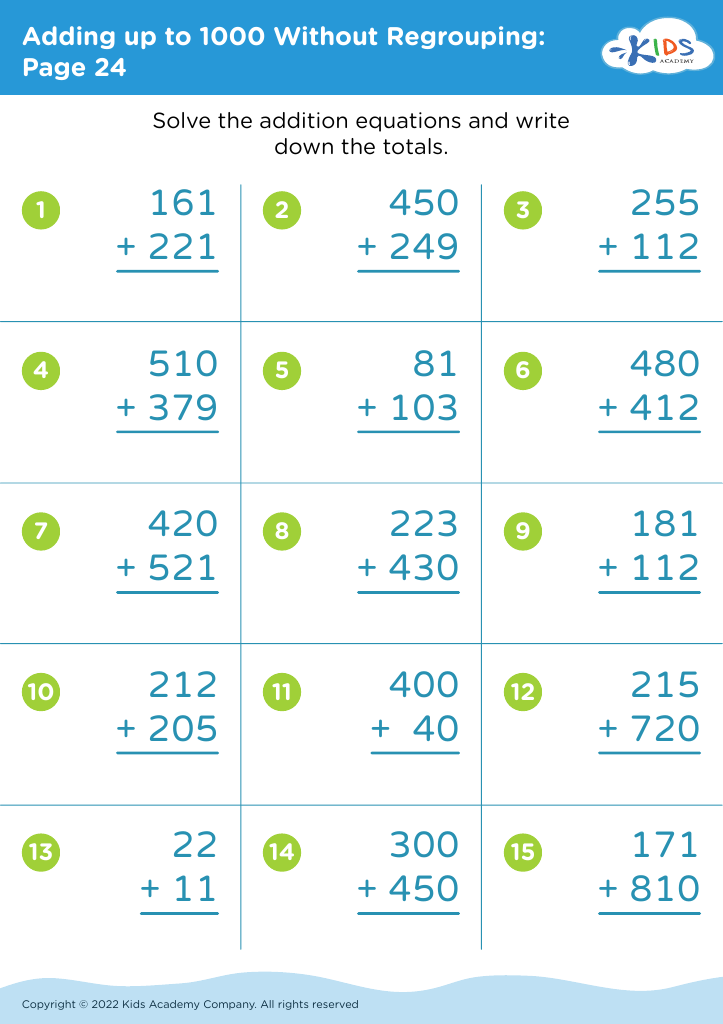Improving math skills Adding up to 1000 Without Regrouping Worksheets for Ages 5-7
3 filtered results
-
From - To
Enhance your child's math skills with our "Adding Up to 1000 Without Regrouping" worksheets, specially designed for children aged 5-7. These engaging, age-appropriate resources focus on building foundational addition skills, allowing kids to practice combining numbers without regrouping. With clear instructions and captivating visuals, these worksheets make learning fun and accessible. Perfect for reinforcing classroom lessons or supporting home learning, they encourage independent problem-solving and boost confidence in math. Whether for extra practice or classroom activities, our worksheets provide the essential tools to help young learners succeed. Start your child's journey towards math mastery today!
Improving math skills, particularly adding up to 1000 without regrouping, is crucial for children aged 5-7 as it lays a foundation for their future mathematical understanding and academic success. At this age, children are developing essential cognitive skills and learning to think critically, both of which are sparked by engaging in mathematical concepts.
Learning to add without regrouping enables children to develop number sense, which helps them recognize values, patterns, and relationships among numbers. When children become proficient at adding up to 1000, they not only gain confidence but also enhance their ability to tackle more complex problems in the future. This skill helps them manage basic financial literacy, such as understanding money, budgeting, and strategic thinking.
Additionally, math proficiency contributes to improved performance in various subjects, supporting a well-rounded education. Parents and teachers can facilitate this learning through fun, interactive activities that encourage practice and reinforce concepts in a playful way. Investments in enhancing early math skills can lead to a positive attitude towards learning, resulting in lifelong benefits. Overall, nurturing math skills in young children sets them on a path to embrace challenges with resilience, contributing to their overall academic journey.


















